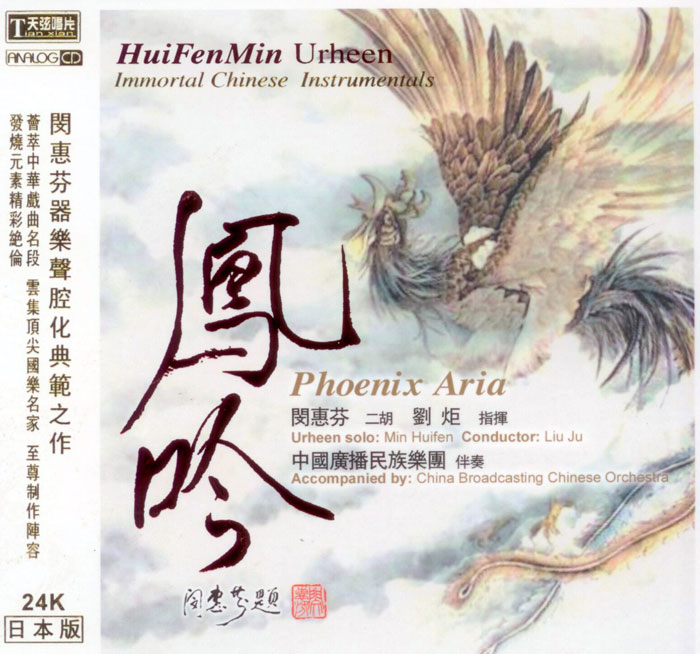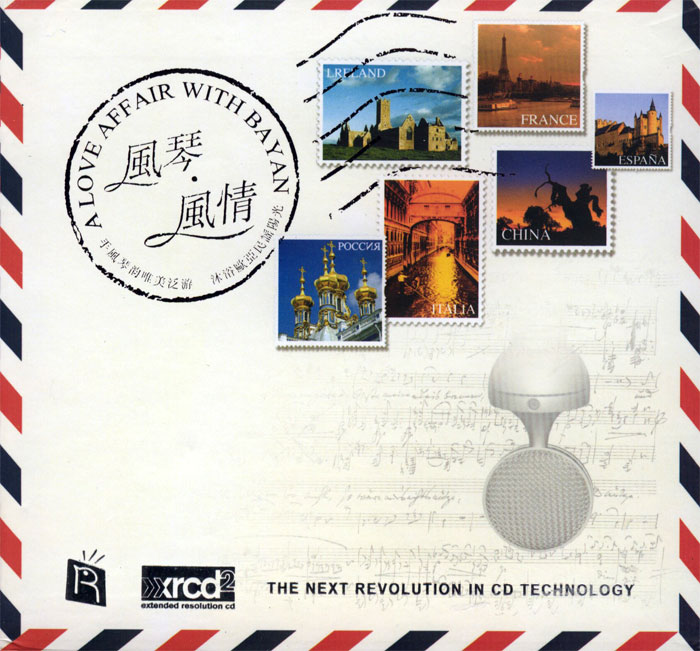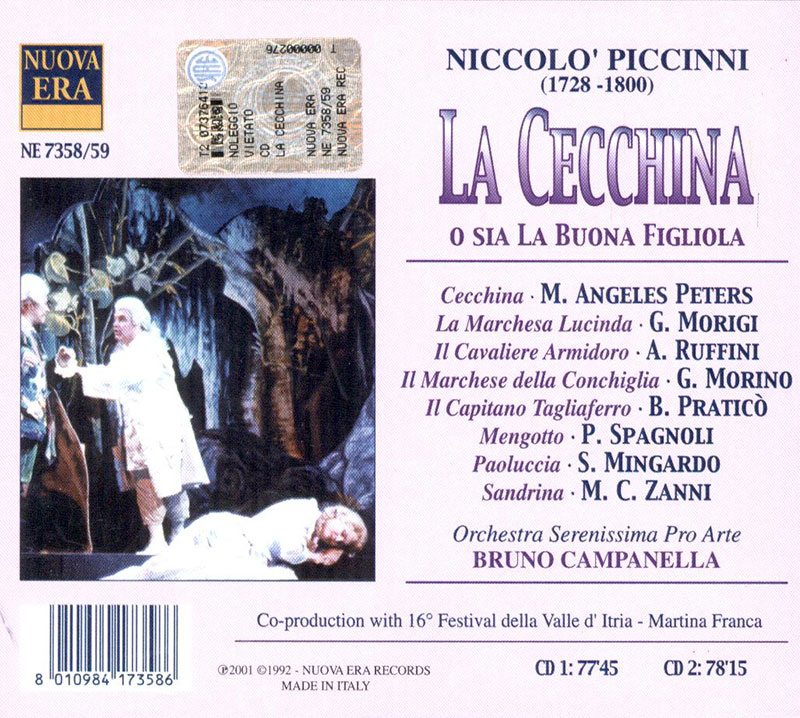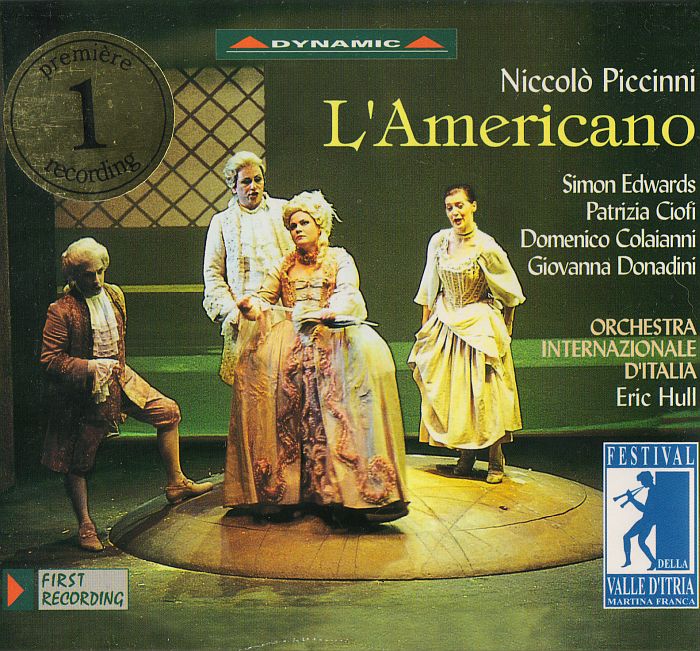Logowanie
Dlaczego wszystkjie inne nie brzmią tak jak te?
SpeakersCorner - OSTATNIE!!!!
RAVEL, DEBUSSY, Paul Paray, Detroit Symphony Orchestra
Prelude a l'Apres-midi d'un faune / Petite Suite / Valses nobles et sentimentales / Le Tombeau de Couperin
Samozapłon gwarantowany - Himalaje sztuki audiofilskiej
PROKOFIEV, Stanislaw Skrowaczewski, Minneapolis Symphony Orchestra
Romeo and Juliet
Stanisław Skrowaczewski,
✟ 22-02-2017
BARTOK, Antal Dorati, Philharmonia Hungarica
Dance Suite / Two Portraits / Two Excerpts From 'Mikrokosmos'
Samozapłon gwarantowany - Himalaje sztuki audiofilskiej
ENESCU, LISZT, Antal Dorati, The London Symphony Orchestra
Two Roumanian Rhapsodies / Hungarian Rhapsody Nos. 2 & 3
Samozapłon gwarantowany - Himalaje sztuki audiofilskiej
Winylowy niezbędnik
ClearAudio
Cartridge Alignment Gauge - uniwersalny przyrząd do ustawiania geometrii wkładki i ramienia
Jedyny na rynku, tak wszechstronny i właściwy do każdego typu gramofonu!
ClearAudio
Harmo-nicer - nie tylko mata gramofonowa
Najlepsze rozwiązania leżą tuż obok
IDEALNA MATA ANTYPOŚLIZGOWA I ANTYWIBRACYJNA.
Wzorcowe
Carmen Gomes
Celebrating the art and spirit of music - vol. 5 - Reference Songs
- CHCECIE TO WIERZCIE, CHCECIE - NIE WIERZCIE, ALE TO NIE JEST ZŁUDZENIE!!!
Petra Rosa, Eddie C.
Celebrating the art and spirit of music - vol. 3 - Pure
warm sophisticated voice...
SAMPLER - STS DIGITAL, Gregor Hamilton
Celebrating the art and spirit of music - vol. 2 - Love songs from Gregor Hamilton
...jak opanować serca bicie?...
SAMPLER - STS DIGITAL
Celebrating the art and spirit of music - vol. 1 - Leonardo Amuedo
Największy romans sopranu z głębokim basem... wiosennym
Lils Mackintosh
Celebrating the art and spirit of music - vol. 4 - A Tribute to Billie Holiday
Uczennica godna swej Mistrzyni
PICCINNI, Gabriella Morigi, Maria Angeles Peters, Bruno Pratico, La Serenissima, Bruno Campanella
La Cecchina o sia La Buona Figliola
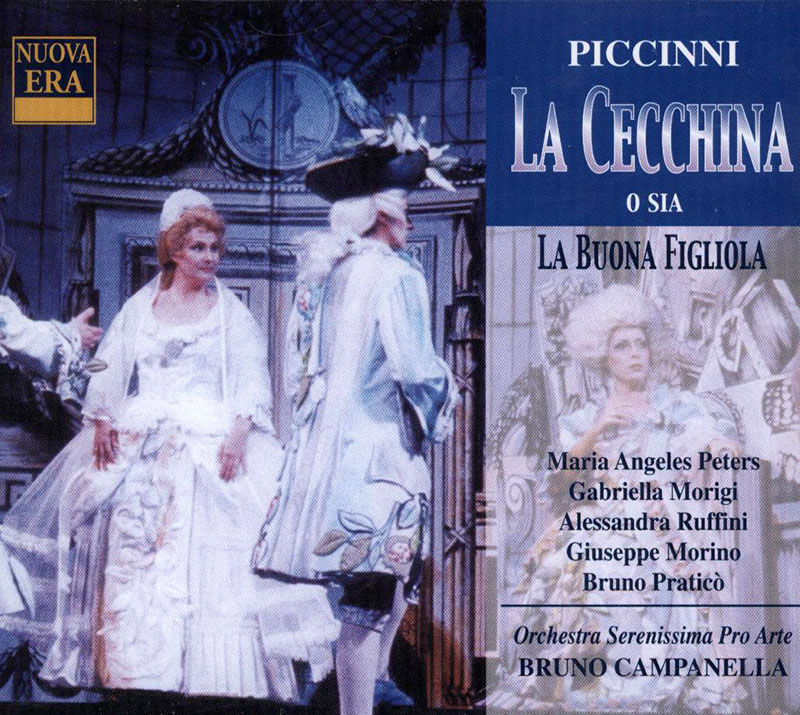
- Gabriella Morigi - soprano
- Maria Angeles Peters - soprano
- La Serenissima
- Bruno Pratico - baritone
- Bruno Campanella - conductor
- PICCINNI
Review by Uncle Dave Lewis [-] La Cecchina ossia La buona Figliuola (Cecchina, or The Good-Natured Girl; 1760) was Italian composer Niccolò Piccinni's greatest success in his native tongue; later, he competed with Christoph Willibald Gluck in Paris, and posterity has deigned Gluck the winner on that score. Nevertheless, Piccinni's work, made from a Carlo Goldoni libretto based on incidents from Samuel Richardson's novel Pamela, is of central historical value to eighteenth century opera, and it is a pity that this Memories release is the most traveled of the three recordings made of it. Led by conductor Bruno Campanella and featuring Maria Angeles Peters in the lead role, the package rather unscrupulously avoids identifying the opera company that gave this performance in the summer of 1990, but it is most likely the Teatro Regio di Torino. In a superficial way, the sound is better than is the standard for pirated opera; it may have been made from the prompter's box or from the seat of an especially fidgety audience member. There is, however, a constant racket going on in this recording: either footfalls from the stage, shifting in a seat, occasional hushed exclamations from the recordist, and so on. What it might be doesn't matter; what does matter is that all of this extraneous noise and racket provides such a high level of distraction that it is impossible to concentrate on the music or the quality of the performance. Among the two alternatives, the Bongiovanni recording under Vito Paternoster is the most likely candidate for something preferable. However, by comparison this recording simply isn't a good value for anyone's money.
